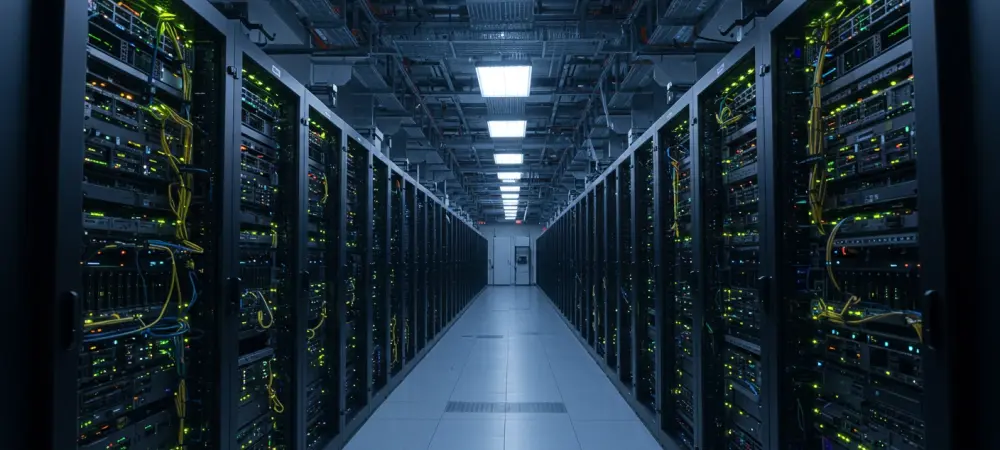Amazon Web Services (AWS) is spearheading a significant data center expansion project known as Project Blue in Tucson, Arizona. This ambitious endeavor aims to establish a massive 290-acre campus with plans for three data centers initially, potentially growing to ten buildings. The project isn’t without controversy, attracting local opposition due to concerns over water usage and environmental repercussions. In this market analysis, we delve into AWS’s strategic motivations, the existing market dynamics, and explore how this expansion fits into broader industry and regional expectations.
Strategic Drivers Behind AWS’s Tucson Expansion
AWS’s decision to develop a substantial data center campus in Tucson aligns with its long-standing initiative of enhancing infrastructure capabilities and regional presence. Historically, AWS has focused on increasing its data center footprint to address growing digital demands and service availability. Tucson presents a unique opportunity, allowing AWS to strategically expand its presence away from the heavily saturated Phoenix market. This move signifies a calculated effort to exploit untapped regional possibilities while maintaining operational efficiency and competitiveness. Furthermore, Tucson’s attraction for operators like Ark Data Centers and TECfusions highlights the area’s hidden potential despite its lesser-known status.
Challenges and Opportunities Surrounding Project Blue
Political and Environmental Considerations
The undertaking of Project Blue has stirred dialogue surrounding environmental impact and political engagement. Initial plans indicated the use of drinking water for cooling purposes, which raised concerns about ecological sustainability. The opposition group No Desert Data Center strongly criticizes AWS’s approach, emphasizing potential negative ramifications for local water resources and ecosystems. Navigating these intricate political landscapes while attempting to meet operational objectives presents a challenge for AWS. It exemplifies the difficulty of balancing technological demands with environmental stewardship, forcing AWS to reassess and adapt strategies.
Comparative Market Dynamics: Tucson Versus Phoenix
In Tucson, AWS encounters a considerably smaller data center market compared to Phoenix. Phoenix’s more mature and competitive landscape offers limited expansion opportunities. Tucson, however, opens doors for AWS to potentially dominate an underdeveloped arena, establishing greater infrastructure and operational control. This contrast underscores AWS’s strategic interest in diversifying beyond traditional market confines and exploring innovative expansions. The local setting in Tucson lends AWS advantages like reduced costs and minimized competition, positioning the company to capitalize rapidly and sustainably.
Innovations and Regional Adaptations
A critical element of Project Blue’s success hinges on AWS’s ability to innovate in resource management and infrastructure adaptation. Tucson’s distinct microclimate necessitates bespoke solutions, particularly in maintaining ecological harmony. Advanced cooling technologies and shifts to utilizing treated wastewater reflect AWS’s commitment to minimizing environmental disturbances as operations progress. Dissecting Tucson’s challenges can inspire AWS to pioneer new methodologies in balancing infrastructural growth with ecological mindfulness, potentially revolutionizing conventional data center practices.
Reframing the Industry Outlook
The rapidly evolving data center sector is teetering on the edge of transformative shifts. Emerging trends driven by technological advancements, shifting economic paradigms, and regulatory pressures are redefining industry landscapes. AWS’s continual focus on renewable energy, along with enhanced cooling innovations, places the company in a favorable position to lead the charge. Companies face an imperative: adapt swiftly to industry changes or risk diminishing relevance in a fiercely competitive field that prioritizes environmental consciousness. AWS’s bold Tucson venture sets a precedent for exploring sustainable expansions and embracing evolutionary trends.
Strategic Insights and Lessons Learned
The unfolding scenario with AWS’s Project Blue in Tucson offers valuable lessons for industry players. Embedding eco-conscious practices and constructive community dialogue emerges as essential tactics when exploring complex projects. Adopting cutting-edge technologies under careful regulatory oversight facilitates smoother transitions. These actionable lessons present effective strategies for stakeholders navigating expansive infrastructure developments, urging consideration of local implications for sustainable success.
Reflection on Future Implications
The insights gleaned from AWS’s Tucson expansion reveal key considerations in corporate accountability and strategic project management. Despite local opposition, AWS’s long-range vision positions Tucson as a pivotal hub within regional digital frameworks. As demand for sustainable tech innovations escalates, AWS is poised to redefine ethical expansion models. The lessons fostered within Tucson have the power to influence industry norms, offering a framework that extends beyond immediate challenges and inspires future thinking.

